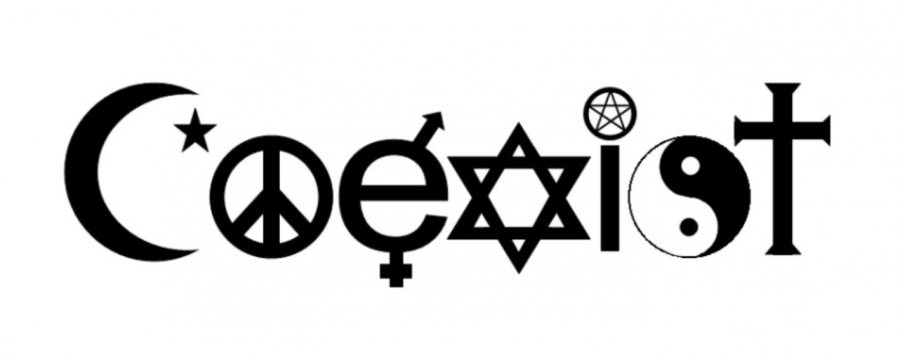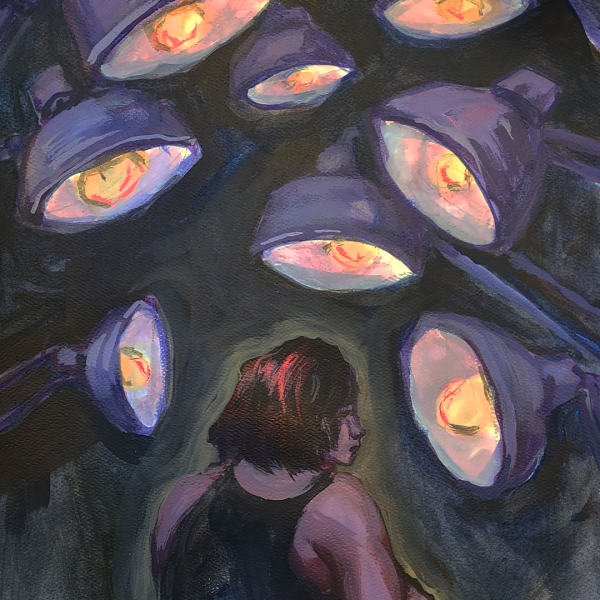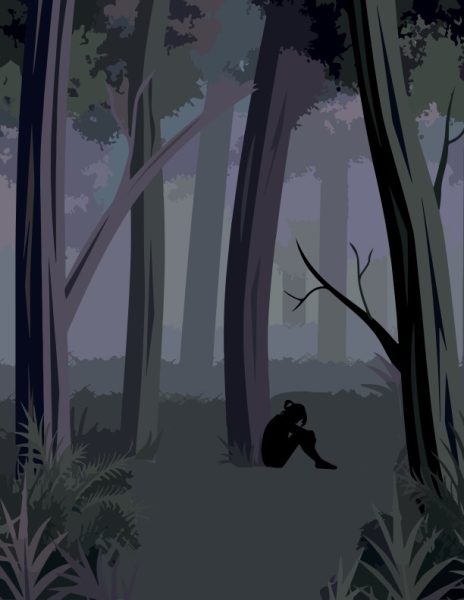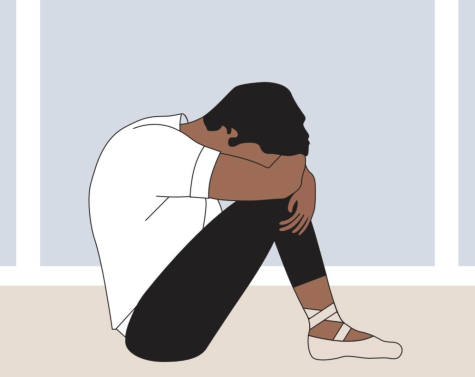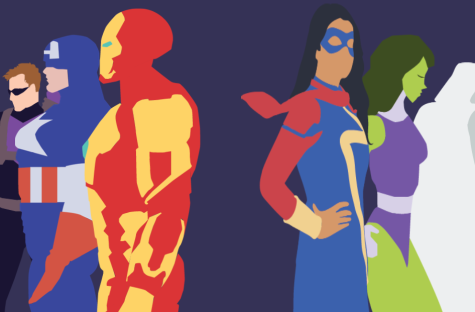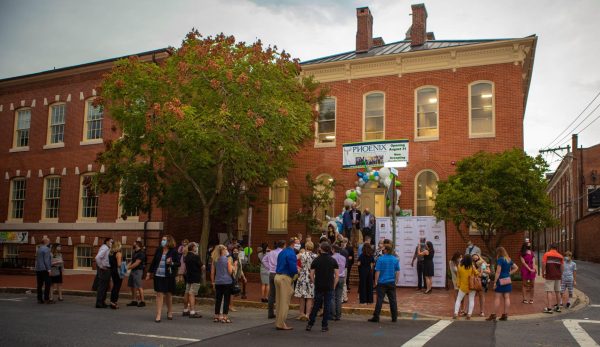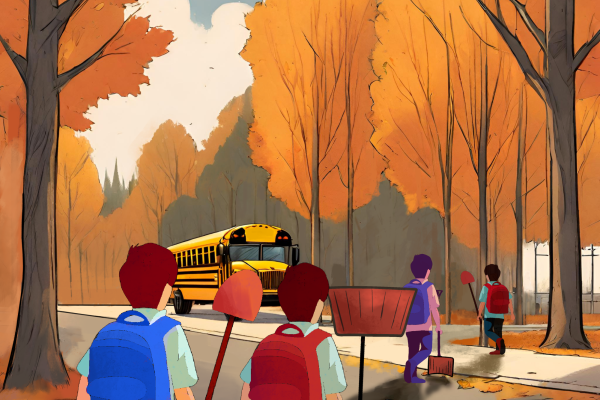A conversation about religion
On Feb. 14, I spoke with six Whitman students about an often uncomfortable topic: religion. In part due to ignorance, assumptions about others’ beliefs and the current political climate, religion has become a topic that people aren’t completely comfortable discussing. In fact, in February, a Federal Appellate Court ruled on a case in which a Christian student in Southern Maryland took legal action because she thought a lesson on Islam violated her constitutional rights.
While the Court ruled against her, the case is a perfect example of what happens when we rely more on stereotypes than facts; we feel threatened in instances when we shouldn’t.
Although I’m relatively comfortable with my own religious beliefs, I was still nervous before the conversation. I worried that there wouldn’t be common ground, that the conversation would be awkward and that no one would be particularly open. Instead, I observed a conversation that was candid and respectful. Though the group of six people certainly don’t represent every religion at Whitman, the conversation between students that practice different religions—Reform Judaism, Greek Orthodox Christianity, Protestantism, Hinduism and Islam—proves that conversations about religions can be positive. I hope that this kind of discussion regarding religion can be normalized; especially when considering that for many people, religion is an integral part of their worldview and identity.
Identification: Junior Syed Azan Ali is Muslim, senior Alisha Dhir practices a modified version of Hinduism, senior Daniel Harris and junior Ethan Singer practice Reform Judaism, sophomore Grace McGuire is a member of the United Church of Christ, and junior Joanna Papaioannou is Greek Orthodox Christian.
Where Beliefs Come From
Most of the students said their families largely impacted their religious beliefs and practices, though now, many practice by choice.
Senior Alisha Dhir: “My parents really influenced my perspectives. We practice a very weird version of Hinduism—we kind of pretend to be Hindu because there are so many beliefs that we just don’t agree with.”
Junior Joanna Papaioannou: “I wouldn’t be as religious as I am if it wasn’t for my parents since they were always the ones who took me to church. But as I’ve gotten older, it’s become more of me taking the lead on this, and it’s not so much what my parents think. It’s more, this is what I want to do, this is what I believe.”
Senior Daniel Harris: “My outlook was somewhat shaped by my parents. We’re humanists so we don’t really believe in the more religious aspects of Judaism; over half of our congregation is atheist. My parents very much attempted to allow us to explore our own religious beliefs and seek out what we believe on our own. I kind of came to the conclusion that my parents did, largely because I was raised by them.”
The students also agreed that misconceptions about religion are common; in fact, almost every single student had more than one story of encountering ignorant reactions when sharing their beliefs.
JP: “A lot of people always ask me if I worship Zeus. I get that question more often than you think—I don’t know if it’s just plain ignorance or them trying to be funny or because it’s practiced by so few people. Other than that, I don’t think people necessarily have negative perceptions, they just don’t really know it exists.”
DH: “A boy I was friends with in middle school once sat down next to me at lunch, looked at me, and said, “Daniel, did you know that the Jews killed Jesus?” He definitely didn’t understand the implications of what he and other people were saying.
“I also find that people are shocked to find out that there are people who are Jewish and also atheist. I think a lot of people have the misconception that to be Jewish you have to believe in God. I think you can believe in a principle and hold that as the core belief of Judaism, instead of believing in God.”
Junior Azan Ali: “Most people in America don’t meet a Muslim. A lot of people also have this common belief that all Muslims are terrorists—which is false first of all—but also that Muslim people hate Jewish people, when the Quran actually says the opposite. There’s so much misinformation in the media that people make all these assumptions.”
AD: “People often don’t really know that much about Hinduism. They don’t want to make any assumptions, so they don’t talk about it. Other times, people will just think I’m any ‘brown person’ religion. I’ve been called a Muslim and a terrorist on the street before.”
These experiences have made them wary to open up about their religion to people who may not understand.
AD: “It’s definitely a ‘pick your battles’ kind of thing. Some people you just know you can’t have this conversation with, so I’ll just tell them they’re right or not react. But if there’s someone who actually wants to be educated, then it’s different.”
AA: “If a person calls me a terrorist, I find there’s two types of people. There’s a certain amount of people who are willing to learn, and then there are people who are just ignorant. If it’s a person who I don’t think has a capacity to understand, I’ll say ‘No’ and ignore them. But if it’s someone who is sincere, I’ll answer them properly.”
JP: “I don’t really feel like I have to explain myself to people who don’t understand—I just kind of accept that I won’t be able to really talk about going to church with them because I don’t want to spend time explaining why church is meaningful to me to someone who won’t get it.”
What Students Believe
Some of the students’ religious beliefs help them answer questions everyone asks themselves at one point—questions like what happens when we die. Regardless of how much of a role religion played, they all had something to say.
JP: “Afterlife is something I try to avoid thinking about because it kind of scares me. I don’t really believe in hell, I mostly believe in Heaven. Not even just that good people go somewhere or bad people go somewhere—I just don’t believe in that. I believe that after you die, people watching get to see the world.”
DH: “I don’t believe in the afterlife. I have always believed—definitely because my parents believe this—that when you die, it’s lights out, it’s over and there’s nothing after that. I definitely agree that it’s a very scary idea, so I understand why the concepts are preached and believed.”
AD: “I haven’t thought much about it, but whenever I do, I take that logical approach that it ends, that I live my life for now.”
AA: “I feel like an outlier here, but my religion strongly believes in the concept of afterlife, that everything is for that. Our concept is that you’re going to live there forever, so you have to use this time wisely and do as many good things as you possibly can.”
Junior Ethan Singer: “In terms of what happens to your actual soul, I agree that you’re done. Neil Degrasse Tyson has this really nice explanation about what happens when you die, basically all about how you as a person no longer exists, but you decompose and feed life forms again. I think that’s pretty cool and kind of like an afterlife. But, I can’t really tell someone not to believe something else because obviously I have no idea.”
Sophomore Grace Mcguire: “I want to believe that people watch over you. I definitely don’t believe in hell, but at the same time I can’t believe anything else. So, I do agree that when you’re done you’re done, but it’s definitely more comforting to think that doesn’t happen.”
Questions and Problems
Most of the students said they don’t agree with every facet of their religions. Still, the degree of disagreement differed.
AD: “I very much disagree with the caste system. It’s all fake. I don’t at all agree with forcefully putting people into a hierarchy. It is also written in the religion that women are worse than the lowest caste. Even if you’re in a higher caste, women are still rejected from the society. Hinduism just doesn’t make sense—it’s so outdated.”
DH: “I believe in a lot of the values of Judaism and what they mean in practice, like what it means to see every individual as a human being. One of the things I’ve decided is that the fact it’s in the text doesn’t make it a binding law I have to abide by.”
JP: “I agree with most parts of my religion. The teachings and parts that I might not agree with are usually the older beliefs—what I’d consider outdated. I’m a strong believer in that we have to mold beliefs to modern society, and for me, mold it how it applies to my life now and use it to guide me.”
GM: “I take Christian principles into account, but I think a lot of parts of the Bible are almost exaggerated and don’t really apply to today. There are stories that might not be true, but I definitely believe more in the actual principles.”
AA: “I am probably what’s considered a ‘standard Muslim.’ Most Muslims agree with most of the religion.”
My parents very much attempted to allow us to explore our own religious beliefs and seek out what we believe on our own.
— senior Daniel Harris
My parents very much attempted to allow us to explore our own religious beliefs and seek out what we believe on our own.
— senior Daniel HarrisA Common Ground
The most significant aspect of the conversation wasn’t the differences in religions, beliefs or practices among the students. It was the fact that the six students agreed on issues far more often than they disagreed.
The best example of this came when discussing how religion shapes their identity.
ES: “I definitely think the cultural parts of being ethnically Jewish are more important than the religious texts. The lessons my parents taught me about being Jewish, they shape every decision I make.”
AD: “I really value Indian culture more than I value Hinduism. That’s almost why I practice at all; I sing the songs and say the prayers and hug my family on big holidays because it’s part of my culture.”
AA: “Ethnicity and religion are so important, especially being Muslim in a non-Muslim country. They coincide for me.”
GM: “It’s a big part of my identity, but I don’t think my religion defines me.”
DH: “The Jewish culture and community is definitely an inseparable part of me and shapes my political ideologies more than anything.”
JP: “Religion is a huge part of who I am. It relates to ethnicity because everyone in Greece believes similar things, so it also connects me to that part of myself. But I think at the end of the day, the biggest thing it is an outlook of what it means to be a good person.”
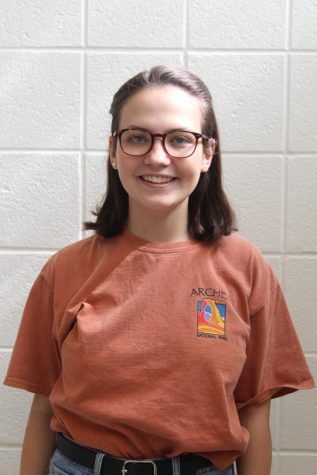
12
Why did you join the Black and White?
I've always loved writing and reading the news. Plus, the community of people is super awesome.
What's your favorite scent?
Freshly mown grass.



